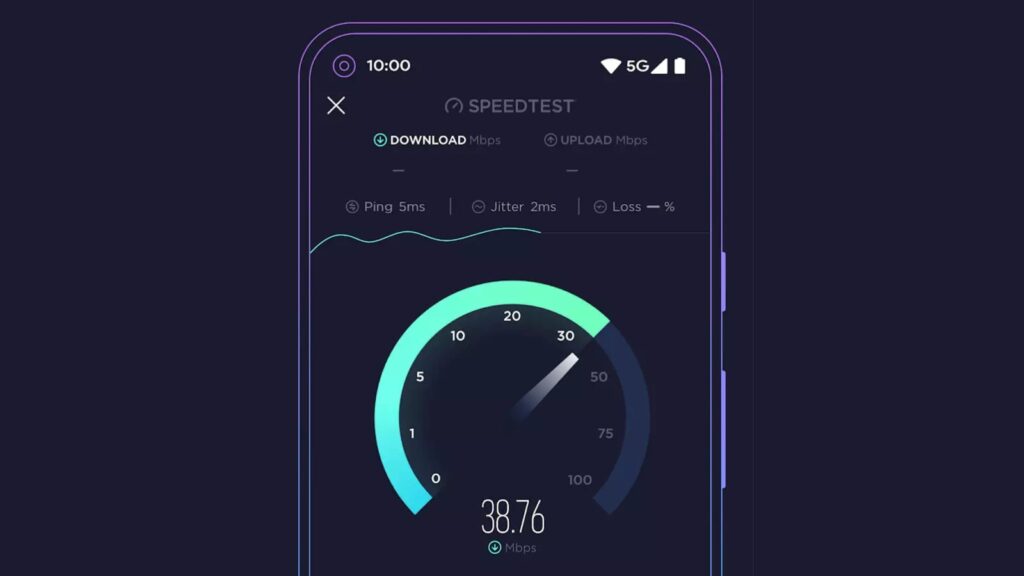Users often encounter a problem where one moment, they are enjoying high-speed internet, while at the very next moment, a simple website fails to load. Many internet users have encountered the issue of fluctuating internet speed. There are not one but many reasons that can cause internet speed fluctuation. The key to solving the problem lies in knowing the exact reason for this fluctuation. Here are seven reasons your internet speed might suffer from internet speed fluctuation.

1. Wi-Fi Signal Quality
The signal quality determines the internet speed you enjoy through a Wi-Fi connection. Many factors can influence the signal quality, especially if your device is far from the router. Firstly, the greater the distance between the device and the router, the weaker the Wi-Fi signal strength. Subsequently, it can cause internet speed fluctuation.
Internet speed further fluctuates through obstacles such as walls and electronic appliances. Speed Test can help you understand the influence of different blocks on signal strength by analyzing the internet speed.
2. Band Type
Routers offer two wireless channels for use: 2 GHz and 5 GHz. The 2Ghz is suitable for long-range wireless connections, while the other is suitable for short-range connections. Also, there is a difference in the speed that the bands offer. For example, 5 GHz is faster than 2 GHz, and you can verify the same by analyzing the internet speed on Smart by connecting your device to different bands.
When you are close to the router, your device often connects with 5 GHz for a faster internet connection. Therefore, many users can enjoy a fast internet speed. However, with a slight difference in the distance, the device automatically shifts to 2 GHz to maintain internet connectivity. However, it results in the fluctuation of the internet speed.
3. Throttling
Throttling also results in internet speed fluctuation. Many ISPs throttle a user’s internet speed when they exceed the internet data limit. It is also applicable to mobile data. When you notice a sudden internet speed fluctuation, you can check notifications to see if you have exceeded the data limit.
4. Bandwidth Hog
Sometimes, one internet activity dominantly uses the most available bandwidth. Even though it does not reduce the actual internet speed, it gives the impression of a fluctuating internet speed or slow connection.
For instance, if you are downloading or streaming a high-quality movie, the website will probably use more bandwidth than other websites. It reduces the internet bandwidth for other activities running in the background. The best way to check whether bandwidth hog is affecting the internet speed is by glancing at all the browser tabs and applications/software running on the device.
5. Number Of Connected Devices
It is common for many users to use the same router for internet connectivity in both office and home setups. The greater the number of connected devices, the more divided the bandwidth availability for different devices. As a result, you might see a sudden shift in the internet speed if some other user connects their device to Wi-Fi.
Also, the type of devices connected to the Wi-Fi affects the internet speed. For example, the laptop takes priority when the laptop and mobile phone are often connected to Wi-Fi. As a result, the internet speed of the mobile phone reduces.
6. Security Lapses/Malware
If malware infects your device, you may notice fluctuations in the internet speed frequently. It is because most malware often opens multiple browsers or tabs on the device, affecting internet speed. However, such issues often become instantly visible to the user.
Also, security lapses can fluctuate the internet speed. In most security lapses, the attacker might be using your bandwidth without your consent, which changes internet speed.
7. Peak Hours
If you often face internet speed fluctuation during the night or early morning, chances are high that you can blame it on peak-time usage. Data indicates that most users prefer to engage online either during the night or early morning. As a result, the peak hour rush can impact the internet speed of your device.
Even though peak hour rush is not often visible, it becomes impactful when users use their internet connection to the total capacity.
Other factors that change the internet speed are faulty hardware, server-end problems and outdated firmware. To solve the issue of internet speed fluctuation, you can start by running an internet speed test. Subsequently, identify the cause of the instability and then fix it.
